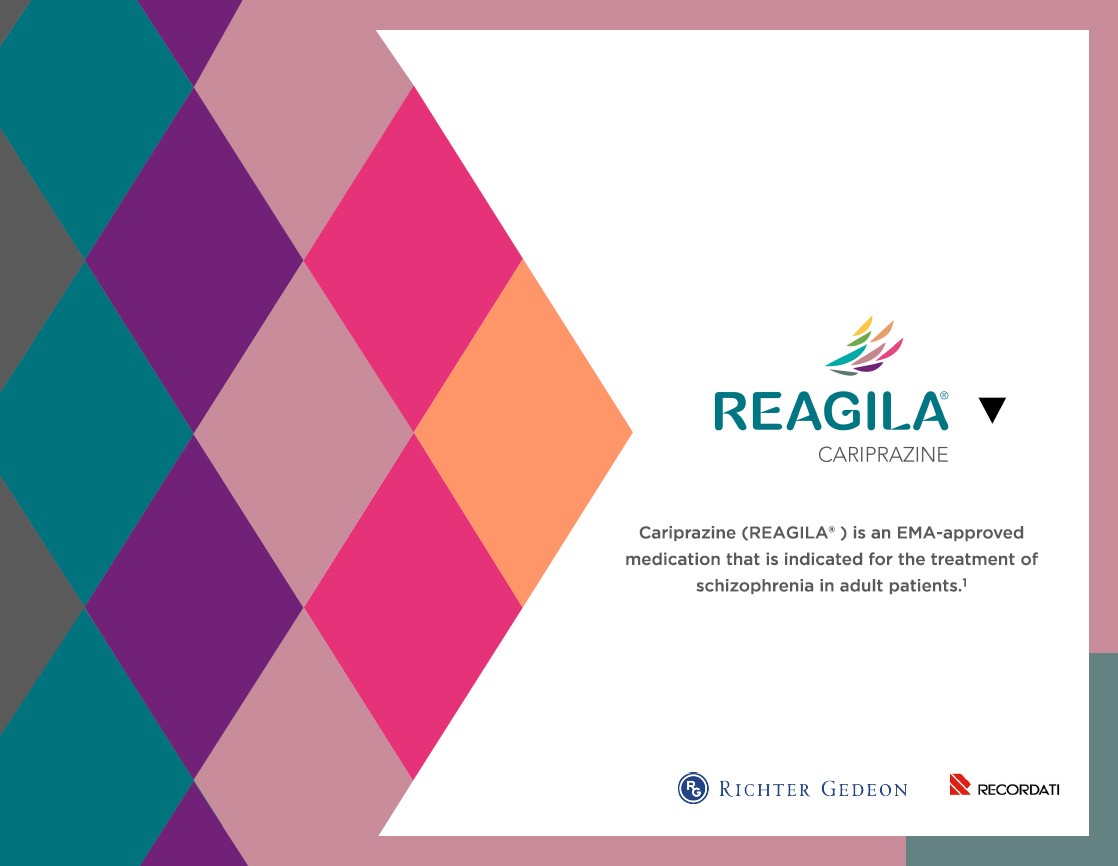The Mechanism of Action of REAGILA
The mechanism of action for all antipsychotics, including cariprazine, is not fully known1. However, based on its receptor profile and numerous studies including in vivo preclinical studies and human PET studies, enough evidence exists to elucidate the key factors contributing to the mechanism of action of cariprazine.
References
- Adapted from Kiss, B. et al. Cariprazine (RGH-188), a dopamine D3 receptor-preferring, D3/D2 dopamine receptor antagonist-partial agonist antipsychotic candidate: In vitro and neurochemical profile. J. Pharmacol. Exp. Ther. 333, 328–340 (2010).
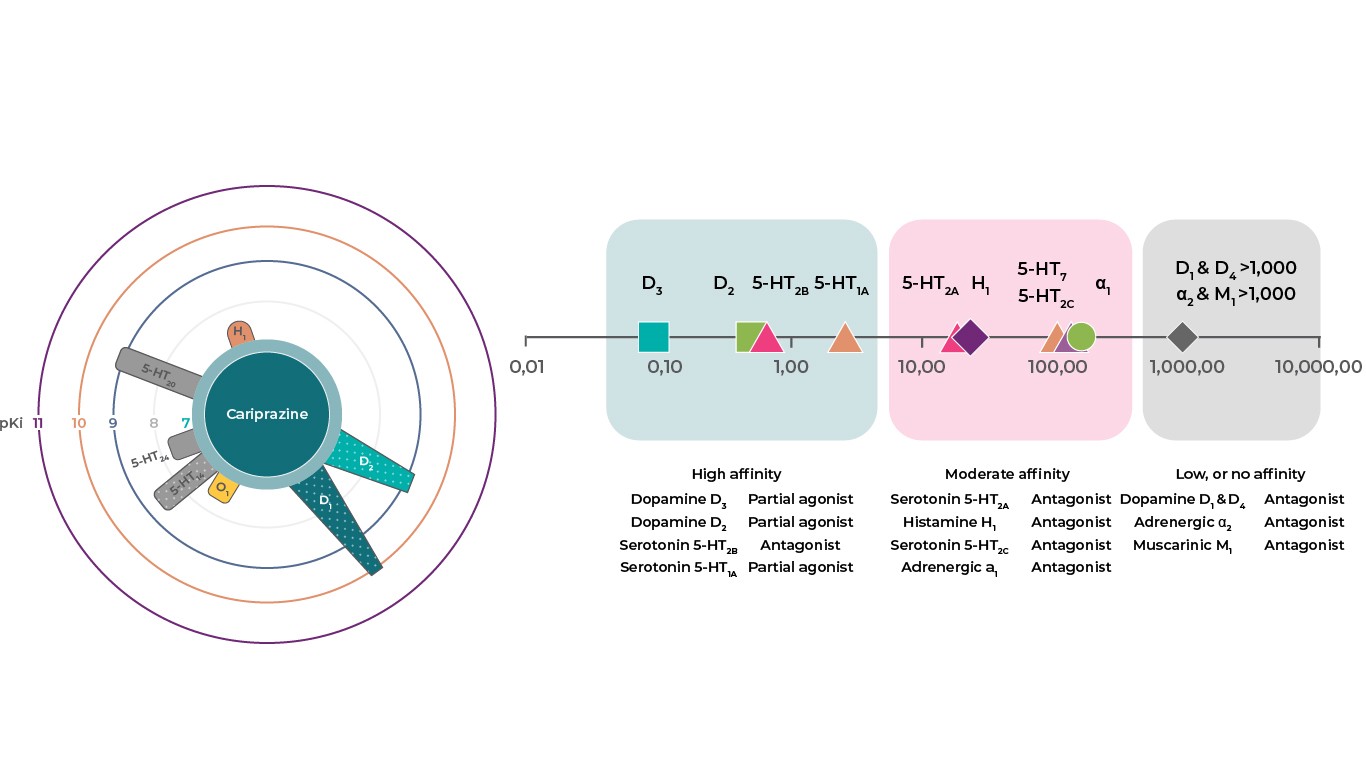

REAGILA in Patients With Acute Exacerbation of Schizophrenia
The advantages of initiating treatment with Cariprazine include its efficacy in short and long term, in negative symptoms, its good cardiometabolic profile, low incidences of weight gain and sedation, and convenient once-a-day dosing, with or without food.
References
- Adapted from Durgam, S. et al. Cariprazine in acute exacerbation of schizophrenia: A fixed-dose, phase 3, randomized, double-blind, placebo- and active-controlled trial. J. Clin. Psychiatry 76, e1574-82 (2015).
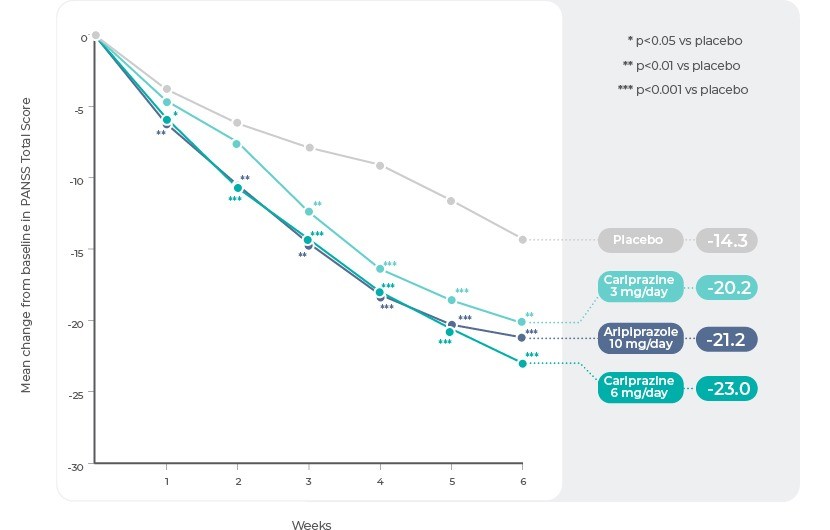

REAGILA in the Long-Term Treatment of Schizophrenia
Long-term treatment with cariprazine has been evaluated in one clinical study of relapse prevention in patients with schizophrenia.
References
- Adapted from Durgam, S. et al. Long-term cariprazine treatment for the prevention of relapse in patients with schizophrenia: A randomized, double-blind, placebo-controlled trial. Schizophr. Res. 176, 264–271 (2016).


REAGILA Controls Negative Symptoms in Schizophrenia
Negative symptoms of schizophrenia can occur as primary symptoms that are part of the underlying pathophysiology of schizophrenia or as secondary symptoms that are associated with or caused by other factors, such as positive symptoms, affective symptoms, or medication side effects1.
References
- Adapted from Németh, G. et al. Cariprazine versus risperidone monotherapy for treatment of predominant negative symptoms in patients with schizophrenia: a randomised, double-blind, controlled trial. Lancet 389, 1103–1113 (2017).
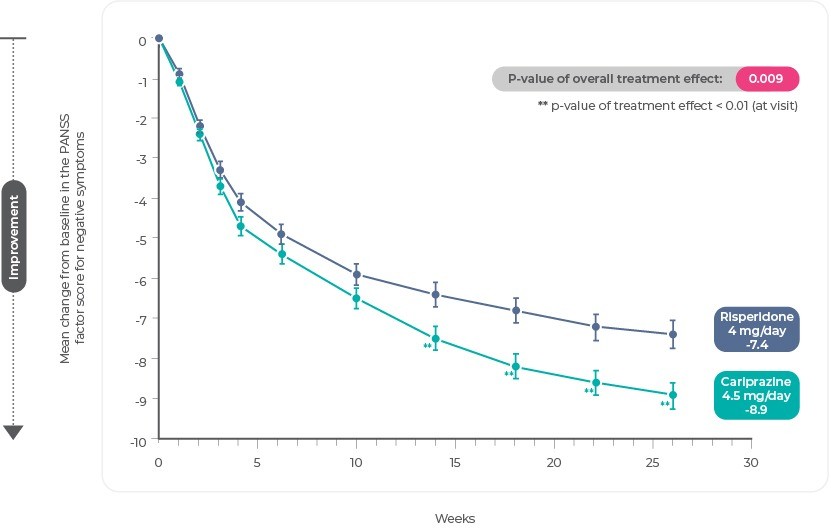

Controlling Everyday Functioning with REAGILA
Negative symptom improvement must be accompanied by improved patient functioning in order for change to be considered clinically relevant in patients with schizophrenia.
References
- Adapted from Németh, G. et al. Cariprazine versus risperidone monotherapy for treatment of predominant negative symptoms in patients with schizophrenia: a randomised, double-blind, controlled trial. Lancet 389, 1103–1113 (2017).
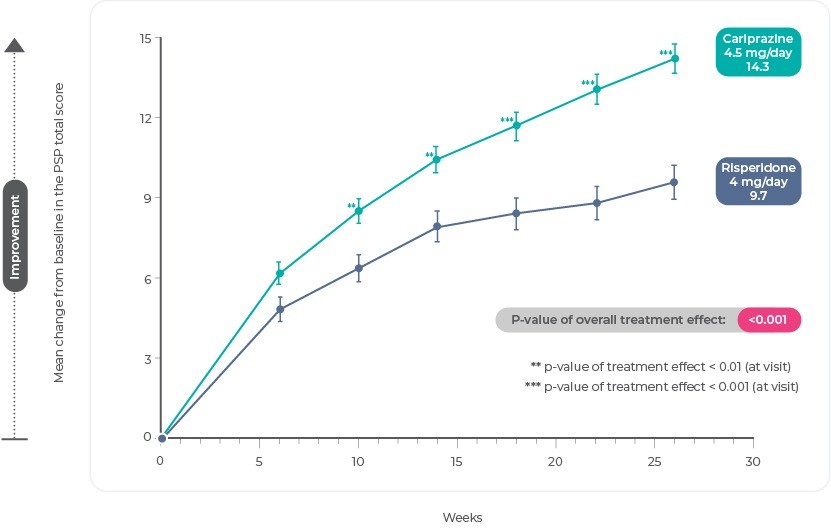

Neuropsychiatric Disease and Treatment
Relationship between the timing of relapse and plasma drug levels following discontinuation of cariprazine treatment in patients with schizophrenia: indirect comparison with other second-generation antipsychotics after treatment discontinuation.
SAFETY AND TOLERABILITY OF REAGILASAFETY AND TOLERABILITY
The safety and tolerability of cariprazine was evaluated in all of the clinical studies in the cariprazine development program: a short-term, phase 2 exploratorFind out more about the safety and tolerability profile of our product
more…REAGILA AND METABOLIC PARAMETERSCARIPRAZINE AND METABOLIC PARAMETERS
Individuals with schizophrenia are more likely than members of the general population to be overweight or obese. Moreover, a large number of patients with schizIndividuals with schizophrenia are more likely than members of the general population to be overweight or obese. Moreover, a large number of patients with schiz
more…Contact Med Info
If you have any questions about REAGILA, you can contact our Medical Information team.
GET IN TOUCH


